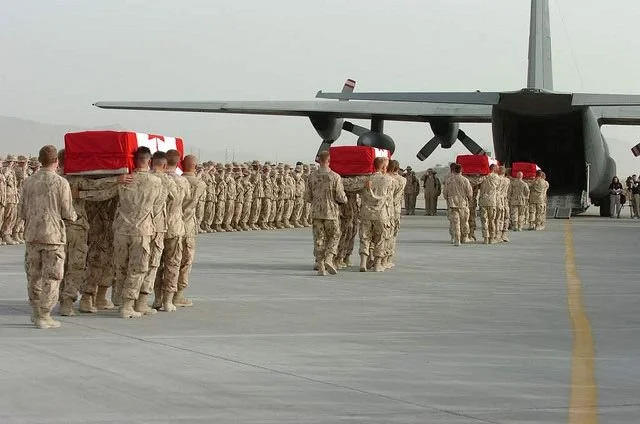By Scott Taylor
Last week the House of Commons passed a Conservative motion to establish a committee to investigate Canada’s handling of what has been dubbed the ‘Afghanistan Crisis.’
While the Trudeau minority government opposed the creation of this committee, the motion was supported by the Bloc Quebecois and the NDP.
Unfortunately the scope of this investigation is limited to the events surrounding the Taliban takeover last August, and how Canada failed to prepare for that eventuality.
One focus of the parliamentary probe will be Canada’s failure to have a plan in place to evacuate those Afghans who had assisted Canadian troops during their decade long participation in that conflict.
One of the most strident and vocal critics of Canada’s handling of the ‘Afghanistan Crisis’ is none other than Maj-Gen (ret’d) David Fraser.
This former combat commander welcomes the establishment of the committee, but Fraser remains frustrated at the slow pace at which Canada is fulfilling its promise to bring 40,000 Afghans to Canada.
What makes Fraser’s current public stance so ironic is that he was one of the most fervent cheerleaders of Canada’s Afghan mission and the claim that all was going smoothly during that operation.
In 2018, Fraser released his book which was misleadingly entitled ‘Operation Medusa: The Furious Battle that saved Afghanistan from the Taliban.’
One can forgive the Trudeau government for not making emergency plans for a mass evacuation of Afghans when our own Canadian combat general proclaimed the Taliban was defeated in a battle back in 2006.
At the height of Canada’s commitment to the war in Afghanistan, Canada did indeed contribute a disproportionate share of the ISAF alliance’s troops and resources. However it must be remembered that we withdrew from the combat mission in 2011, and we wrapped up our far smaller training mission in 2014.
On the diplomatic front, at one point the Canadian embassy in Kabul was second in size only to our embassy in Washington, DC.
By the time that Ashraf Ghani fled the Presidential palace and left Kabul to the mercy of the triumphant Taliban, Canada barely had a skeleton crew of diplomats left on the ground.
Without our own military resources, Canada would have had to rely largely upon U.S. intelligence reports to assess the ongoing situation.
We now know that our American leadership long knew that this war was unwinnable, but lied to the American public in order to retain support for the ongoing expenditure of blood and gold.
To be fair, it must have been difficult for the Pentagon officials to watch the 350,000 strong Afghan security forces that they armed, trained and paid, simply evaporate without a fight. If history were to have repeated itself, the U.S. backed Afghan government forces would have been able to hold major cities such as Kabul, for at least a few years.
When the Soviets withdrew in 1989, the Afghan communist army they had created was able to resist the warlords until 1991. It only fell then because Uzbek warlord Abdul Rashid Dostum switched sides and turned on embattled President Mohammed Najibullah.
For the record, despite a lifetime career laced with treachery, deceit and war crime allegations, Dostum remains a powerful force in Afghanistan even after this latest Taliban victory.
Such is the complexity of the Afghan political landscape. Our Canadian leadership never understood the equation even during our military deployment and certainly had no clue when they embarked on this fool’s errand back in 2002.
The focus of this parliamentary inquiry should not be on how the current government screwed up the exit from Afghanistan in the summer of 2021. It should instead focus on how Canada got itself into such a botched mess in the first place.
It is important that we also investigate how the messaging could have been so misleading during the duration of our military commitment to that conflict.
Stephen Harper’s Conservative government subdued any criticism by claiming that to question the mission was to criticize our soldiers.
Nothing could be further from the truth. They did their duty. The leadership did not do theirs.


